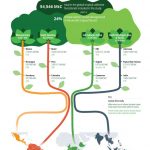News
Heart-to-Heart Talk with 6 People of the Mekong
The Mekong Butterfly had a heart-to-heart talk with 6 people of the Mekong — they are from 6 different communities in Thailand located on the Mekong riverbank. Despite informal atmosphere, topics of the discussion were very earnest around problems they have been facing from irregular ...
Empty Nets Syndrome: How young fishing families on Cambodia's Mekong are struggling to survive
Sami (16) and Luc (25) have both grown up both on the water. Their families can trace an oral history of fishing and seafaring that dates back 4000 years – migrating across South East Asia and even surviving the Khmer Rouge genocide of 1975-1979 to ...
Corinne Redfern
Are Chinese-funded dams on the Mekong River washing away Cambodian livelihoods?
Beijing’s spending on hydropower projects is welcomed by many poorer Southeast Asian countries, but it comes with a huge environmental and social cost, experts say. Keep reading ...
Families, authorities reach relocation deal
Locals and authorities came to a relocation agreement on January 23 after some 100 villagers, representing about 200 families living on a riverbank in Kampong Chhnang province protested on Sunday to demand proper compensation after they were told they must move to pave the way for ...
China hydropower having major impact along Mekong River: study
Hydropower facilities along the upper reaches of the Lancang, which becomes the Mekong River as it flows out of China, have led to major river-flow changes affecting Thailand, Cambodia, Laos, Myanmar and Vietnam, according to a study from Finland’s Aalto University. The study found river-flow ...
R’kiri tribe gets emotional
A remote tribe in northeast Cambodia were crucial participants in a new study that concludes the way our bodies express emotions is universal, rather than dictated by the cultures in which we are raised. The work of four American psychologists, the finding is soon to ...
Indigenous lands are even more critical to preserving the Earth than we thought

Nearly one quarter of the carbon stored above ground in tropical forests is currently in the care of indigenous and traditional communities. A new report suggests that keeping those populations on the land and guaranteeing their right to it could be the key to keeping ...

